Form Analysis
Form Analysis
All graduate music students are expected to demonstrate a competency with the basics of form analysis. We assess this through the proper labeling of cadences, phrase types, and formal structures. The exam focuses on Classical Period instrumental forms Binary, Ternary, Sonata/Allegro, Rondo etc. We use the text Classical Form: A Theory of Formal Functions for the Instrumental Music of Haydn, Mozart, and Beethoven by William E. Caplin.
Phrase Structures - Samples
Label the phrase structure for the theme below. Indicate the smaller 'sub' structures and label the cadence(s).
Example 1
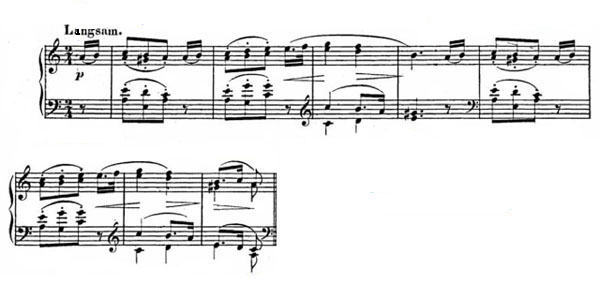
Solution Click to expand
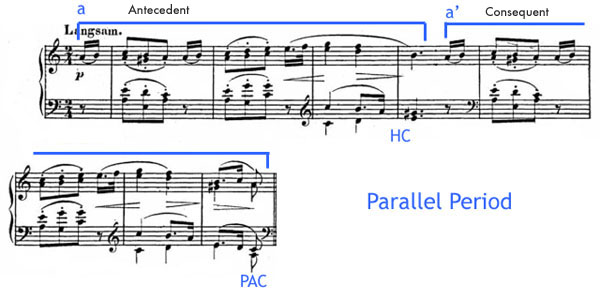
Example 2
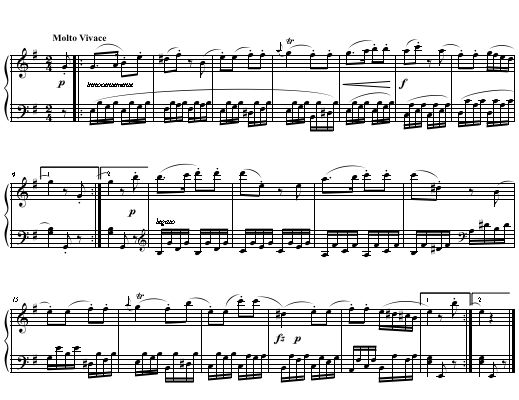
Solution Click to expand
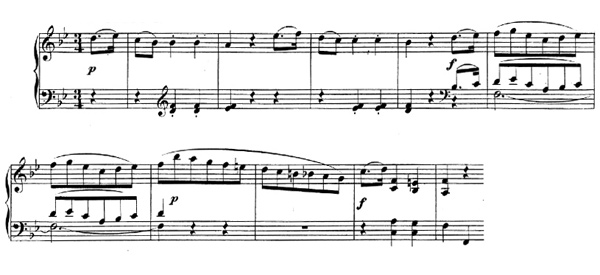
Example 3

Solution Click to expand
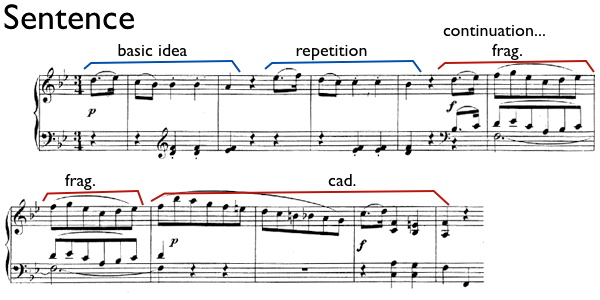 /div>
/div>
Example 4
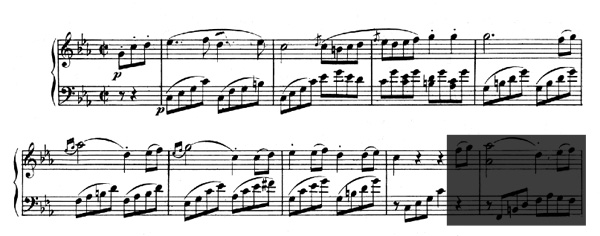
Solution Click to expand
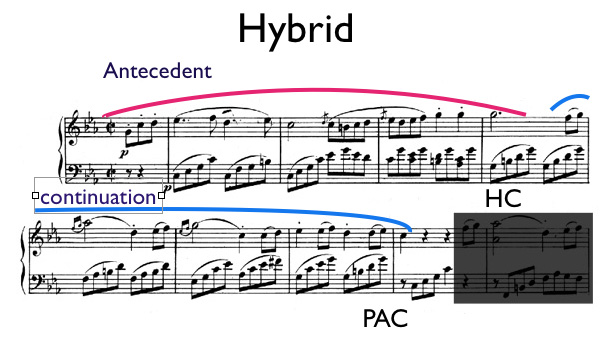 div>
div>
Small Forms - Samples
For the examples below determine the formal structure. Show formal divisions, key relationships, and structural cadences.
Example 1
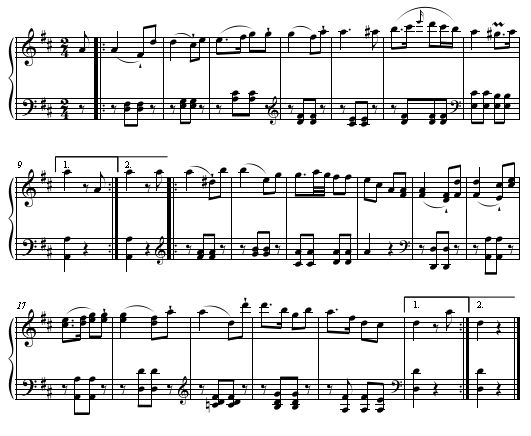
Solution Click to expand
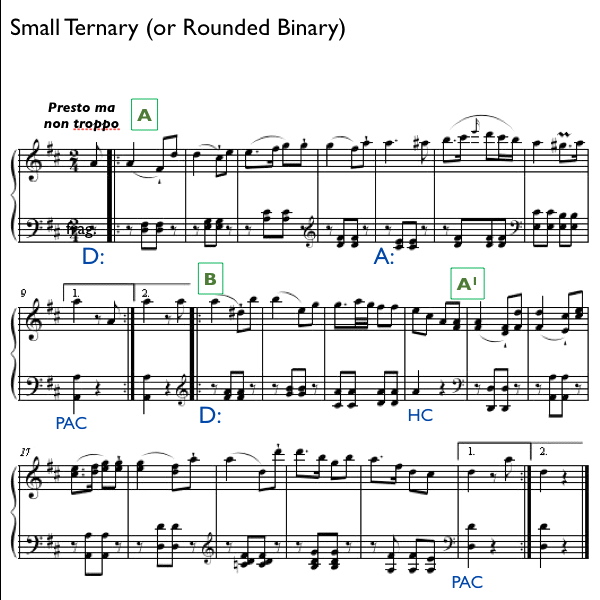 div>
div>
Example 2

Solution Click to expand
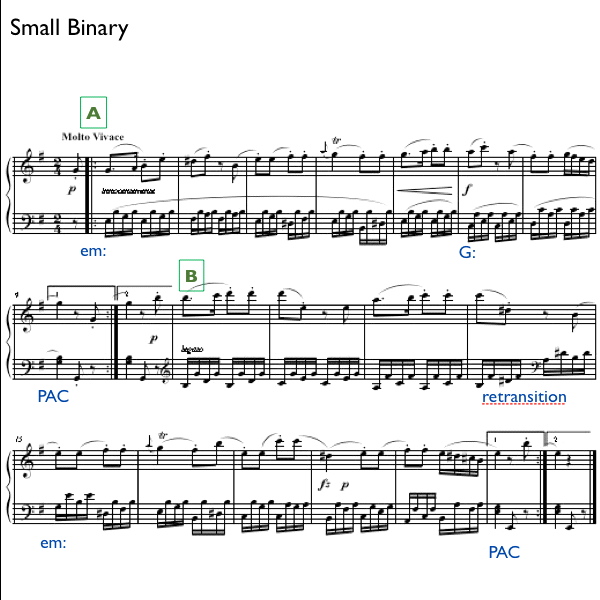 div>
div>
Large Forms - Samples
Give the formal structure of a typical Sonata Allegro movement. Indicate the sections and tonal structure.
Solution
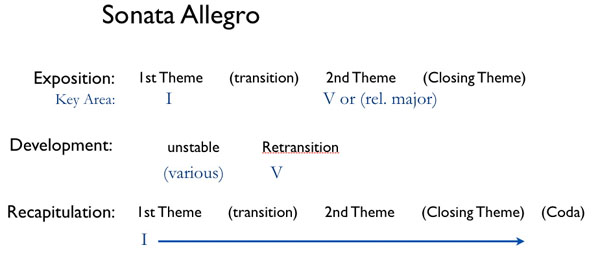
Give the formal structure of a typical Large Ternary movement. Indicate the sections and tonal structure.
Solution Click to expand
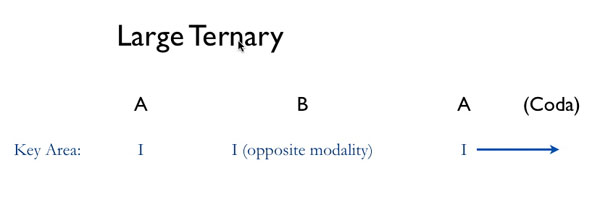 div>
div>
Give the formal structure of a typical 5-part Rondo movement. Indicate the sections and tonal structure.
Solution Click to expand
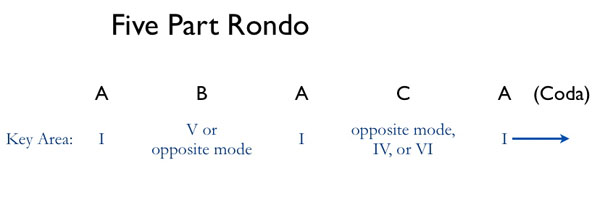 div>
div>
Give the formal structure of a typical Sonata Rondo movement. Indicate the sections and tonal structure.
Solution Click to expand
 div>
div>